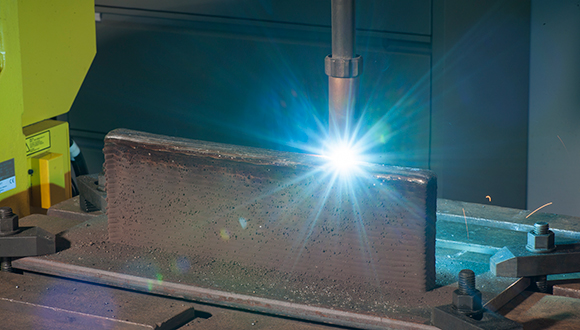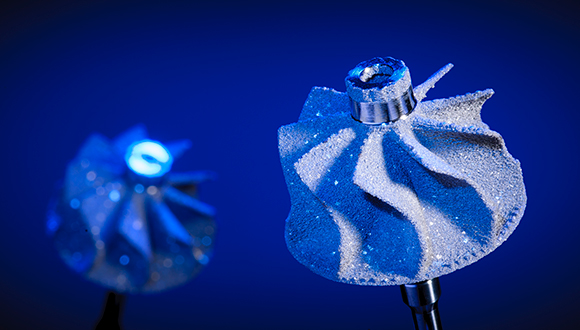Thu, 01 October, 2020
Prediction of fatigue limit of additive manufactured materials
Apply here
What is the background to this PhD topic?
In fatigue design, it is important to know the fatigue limit of the material to be used to avoid fatigue failure.
For conventional metallic materials, with or without cracks, the Kitagawa-Takahashi diagram is often used to predict the fatigue limit. The stress range corresponding to no crack growth increases with decreasing crack size according to linear elastic fracture mechanics until crack size approaches a critical value below which the growth rates of small fatigue cracks cannot be correlated with the stress intensity factor range. There are several existing models predicting the fatigue limit of small cracks.
Gap in additive manufacturing process
Additive manufactured (AM) materials often contain manufacturing defects such as gas porosity, lack of fusion, inclusions and micro-cracking. Their fatigue behaviour is often found to be different from that of conventional metallic materials due to their heterogeneous microstructure characteristics and manufacturing defects of various types and sizes. Therefore, the models developed for predicting fatigue limit of conventional metallic materials may not be suitable for the AM materials.
Project Outline
This study will contribute to developing models to predict the fatigue limit of AM materials with manufacturing defects and to characterise small crack behaviour in these materials.
Numerical modelling expertise
The study will involve both numerical modelling and fracture mechanics analysis to develop solutions of stress intensity factor for typical defects seen in AM materials. They are often not planar defects and are of different shapes. Models will be developed to characterise the behaviour of small cracks, including threshold crack growth, in AM materials. In addition to collecting relevant fatigue data of AM materials from the literature, fatigue tests will be performed to verify the model proposed.
 Arc based additive manufacturing. Image courtesy of TWI Ltd
Arc based additive manufacturing. Image courtesy of TWI Ltd
PhD funding information
About the Lloyd's Register Foundation Sponsorship
The Lloyd’s Register Foundation funds the advancement of engineer-related education and research and supports work that enhances the safety of life at sea, on land and in the air because lives matter. Lloyd’s Register Foundation is partly funded by the profits of their trading arm Lloyd’s Register Group Limited, a global engineering, technical and business services organisation.
Fully-funded for UK & EU students, partial funding for overseas students
This project is funded by Lloyds Register Foundation, TWI and Coventry University. The studentship will provide a successful Home/EU student with a stipend of £16k/year and will cover the cost of tuition fees. Non-EU students are also welcome to apply, the full studentship will be provided for this project to cover the stipend and tuition fees, subject to availability.
NSIRC and TWI Ltd
NSIRC is a state-of-the-art postgraduate engineering facility established and managed by structural integrity specialist TWI, an internationally renowned research and technology organisation, who's members include Rolls-Royce, BAE Systems, Aramco, BMW and many more.
NSIRC works with, top UK and International Universities and several leading industrial partners to deliver cutting edge research and train highly qualified personnel.
......
A PhD awarded by Coventry University
Coventry University has been shortlisted for UK University of the Year in the Time and Sunday Times Good University Guide 2021.
Their research in Materials Engineering and Structural Integrity builds on our historical research strengths at Coventry and adds new research teams through investment and growth. The university is also a part of the newly established University Research Institute for Future Transport and Cities.
Coventry aims to be the research partner of choice for key industry sectors including manufacturing, aerospace, and energy. They bring value to our partners by adding effecting knowledge transfer, generating intellectual property and fostering new technologies.
The specialities of Coventry University
- Metrology
- Advanced experimentation
- Residual Stress Analysis
- Structural Integrity
Key research themes include:
- Advanced analytical, modelling, and experimentation methods
- Materials, mechanics and measurement
- Non-destructive evaluation, material anomaly detection using evolutionary computing techniques
- Residual stress measurement and stress engineering
- Structural integrity methods for new materials made by advanced manufacturing processes
......
Entry and candidate requirements
Candidates should have a relevant degree at 2.1 minimum or an equivalent overseas degree in engineering or materials science.
Candidates with suitable work experience and strong capacity in numerical modelling and experimental skills are particularly welcome to apply.
Overseas applicants should also submit IELTS results (minimum 7.0) if applicable.
Any questions or enquiries
If you have any questions that you like to ask us about any aspect of this PhD from funding to application, travel, visa etc, please email enquiries@nsirc.co.uk
 Electron beam additive manufacturing. Image courtesy of TWI Ltd
Electron beam additive manufacturing. Image courtesy of TWI Ltd
Other pages that related to this one...